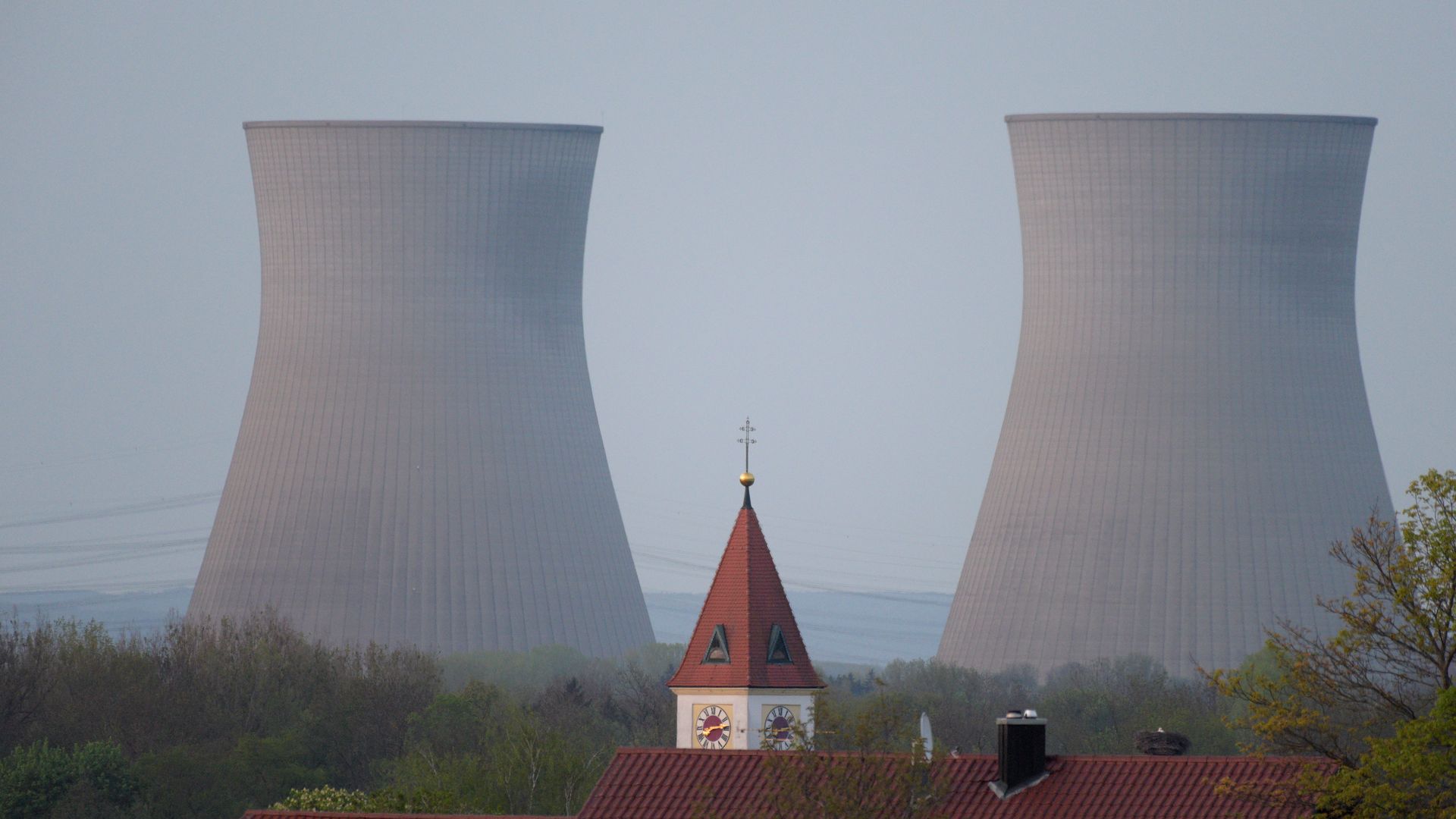Sep 4, 2018 - Energy & Climate
Study: Nuclear revival necessary for cutting global carbon emissions
Add Axios as your preferred source to
see more of our stories on Google.

A nuclear power plant in Gundremmingen, Germany. Photo: Stefan Puchner/picture alliance via Getty Images
